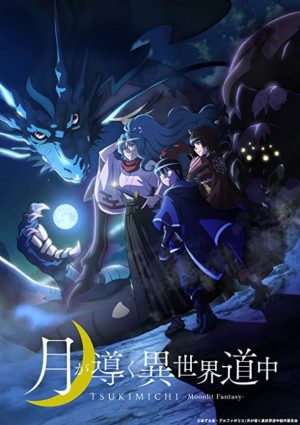
As we watch Tsuki ga Michibiku Isekai Douchuu (Tsukimichi -Moonlit Fantasy-), we marvel as we enjoy its perfect balance of seriousness and comedy. Even though Tsukimichi has great comedy, intense action, and fun adventures, we won’t be tackling those in this article. Rather, we’d like to focus on a single detail, which you’ve probably seen as trivial. Since Makoto can’t communicate properly as his pronunciation sounds weird, he uses his magic to create a visible thought bubble to talk with locals. As magical as that sounds, this kind of communication is actually present in the real world too! Curious? Then, let’s dive right into it.
Truly Magical Devices

If the title alone doesn’t remind you of something or someone, then let us help you a bit–the late Stephen Hawking. Stephen Hawking is esteemed among scientists for his contributions to understanding this universe we live in. Less science-y people like us remember him as this ultra-smart guy who uses some kind of monitor to talk to others. Let’s talk about that device.
Due to amyotrophic lateral sclerosis, an illness that slowly affects the nerves, Stephen Hawking’s bodily functions degenerated over time. Even though his brain continued to function well, the rest of his body did not. When his speech was affected, he resorted to different devices. It may not look like it, but his device has actually gone through multiple modifications. It may look like it is capable of reading his mind, but that can’t be farther from the truth. In reality, he uses different body parts to code his sentences. He used fingers, cheek muscles, and even eye-tracking technology as his condition worsened. Once he was done coding, the computer would relay what he had to say.
There Is More to It Than That
Stephen Hawking’s device is called an SGD or a speech-generating device, which further falls under AAC or Augmentative and Alternative Communication. As the name suggests, Hawking’s device isn’t the only kind of SGD, more so AAC. There are various SGDs available in the market. It ranges from applications, buttons on a board with corresponding speech output, and high-tech devices like Stephen Hawking’s. Choosing which device one should use is usually based on a speech-language pathologist’s professional judgment. Factors like residual ability, need for communication, and general reception towards the device are considered during the selection process.
So, Can I Also Use Those?
These devices sure sound cool, and you may be wondering if you can actually use them. The short answer is yes, everybody can use them. Obviously, those who benefit from them the most are individuals with different conditions that have affected their speaking capabilities. ALS is just one of the many other such conditions. For example, people who needed to get their larynx removed due to cancer or trauma, or perhaps those who lost their ability to speak due to stroke can benefit from SGDs. Not only that, even children benefit from these devices. Children who have developmental disorders may use these devices not only to supplement speech but also expand their vocabulary and improve their communication skills.
Because these devices are often used by these individuals, it’s easy to associate them with certain conditions. However, SGDs don’t always have to be permanent. There are conditions that also call for the temporary use of such devices. It may be a singer who developed vocal fold nodules due to overuse, an acute stroke patient who is yet to benefit from spontaneous recovery, or generally, anybody who has lost their voice from too much shouting.
Using SGDs, however, has caveats. As much as the technology has developed, it still doesn’t beat natural speech in terms of convenience and efficacy. After all, we use billions of words to communicate. In order to at least have a chance of reaching natural levels, a device should have those words available. Not only that, coding and stringing words together can be time-consuming. Ten or so seconds may not sound long, but those few seconds result in awkward silences during conversations. In simpler terms, you can use SGDs just for the sake of it, but it probably won’t be as effective as speaking.
Final Thoughts
Even though it is highly likely that the creators of Tsukimichi didn't have all of these in mind while conceptualizing the series, we are still grateful for the opportunity to share some awareness regarding this topic. After all, it’s not every day we get a chance to share something educational and interesting. In our opinion, this kind of information just makes the watching experience more entertaining!
Recommended Post
Tsuki ga Michibiku Isekai Douchuu (Tsukimichi -Moonlit Fantasy-)
Recommended Post







